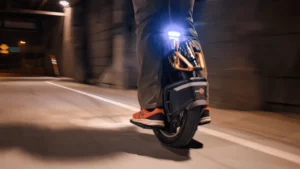The global Ventricular Assist Device Market is projected to surpass USD 4.2 billion by 2033. Ventricular assist devices are specifically designed to support the pumping action of a failing heart. These devices are either utilized as a bridge to heart transplantation until a suitable donor becomes available or as a long-term solution for patients with chronic heart failure. As per current analysis, both heart transplant cases and heart failure incidences are anticipated to rise in the coming years. The increasing prevalence of unhealthy lifestyles coupled with a growing geriatric population has heightened the risk of advanced cardiac conditions, thereby fueling the Ventricular Assist Device Market. Continuous advancements in immunosuppression techniques are improving transplant success rates, while innovative cardiac implants are helping to better manage heart failure by providing essential heart support. For example, AdjuCor GmbH, a German medical device company, announced its project “rebate,” a cardiac support device aimed at treating advanced heart failure and offering patients a better quality of life. Similarly, major firms such as Abbott are making significant investments in device innovations that address critical cardiac health concerns, further enhancing growth opportunities in the Ventricular Assist Device Market.
Companies in the Ventricular Assist Device Market are actively pursuing mergers, collaborations, acquisitions, long-term contracts, and service agreements to strengthen their global presence. For instance, Abbott secured approval from U.S. and European regulatory authorities for the development of new technologies that address abnormal heart rhythms, thereby preventing arrhythmias from advancing to severe heart failure. Such developments highlight the industry’s focus on R&D initiatives aimed at launching next-generation devices that deliver improved cardiac function and better patient outcomes. The continual flow of investments in this direction is expected to sustain innovation within the Ventricular Assist Device Market.
According to CXOs and primary research, COVID-19 had a dual impact on the Ventricular Assist Device Market. While heart surgeries declined during the pandemic due to shortages of hospital resources and critical care beds, the post-pandemic period saw a surge in demand for ventricular assist devices. The rise in stress, disrupted sleep cycles, and lifestyle changes during widespread infection periods further aggravated heart ailments, increasing the need for cardiac support systems. This created new growth avenues for the Ventricular Assist Device Market in the post-pandemic landscape.
The Ventricular Assist Device Market is evaluated across North America, Europe, Asia-Pacific, Latin America, and the Middle East & Africa. Among these, the Asia-Pacific region is expected to account for the highest market share, followed by Europe, North America, Latin America, and the Middle East & Africa. Factors such as ongoing product innovation, increasing initiatives to develop artificial heart components, and the presence of major manufacturers in the region are key drivers contributing to the market potential in Asia-Pacific. Prominent companies shaping the competitive landscape of the Ventricular Assist Device Market include Abbott Laboratories, Abiomed, Medtronic, Berlin Heart GmbH, Calon Cardio, CardioDyme, Jarvik Heart Inc., Medtronic plc, ReliantHeart Inc., SynCardia Systems, and Terumo Medical Corporation Ltd.
Click here to read complete article








